How a queer Nigerian fought his family’s homophobia
Colin Stewart is a 45-year journalism veteran living in Southern…
Homophobic online comments triggered a sharp rebuke.
A queer Nigerian on X (Twitter) has shared his experience of resisting his stepbrother’s overbearing and homophobic behaviour.
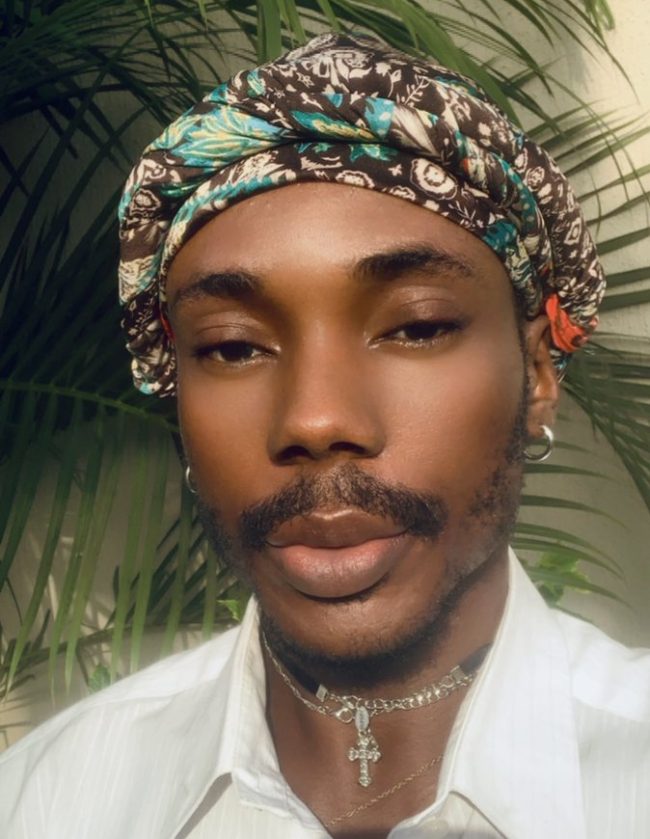
COMMENTARY
By NoStringsNG Contributor
The young Nigerian stylist and digital creator who goes by the handle @sonofceci made the experience public when he shared screenshots of his conversation with this stepbrother, calling him out and exposing the brother’s deep-seeded homophobia.
In the screenshots shared by the young man, a creative writer, it was evident that his brother showed no interest in his wellbeing, but rather was more concerned and irritated by his personal lifestyle choices.
The unfortunate conversation was triggered after the young man uploaded a Whatsapp profile photo of himself wearing a scarf. Something he described as “beautiful and harmless” was perceived by his stepbrother to be “gayish” and revealed “desires to become a cross-dresser”.
Excerpts of the conversation are in the screenshots below, starting with @sonofceci’s introduction to the argument:
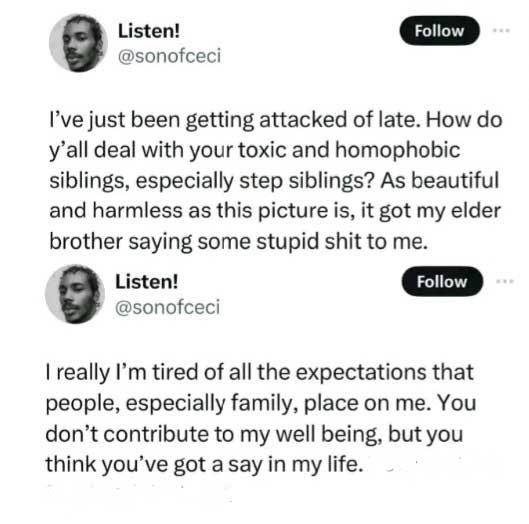
After the stepbrother took offense at @sonofceci’s photo, @sonofceci tried to correct his ignorant assumptions.
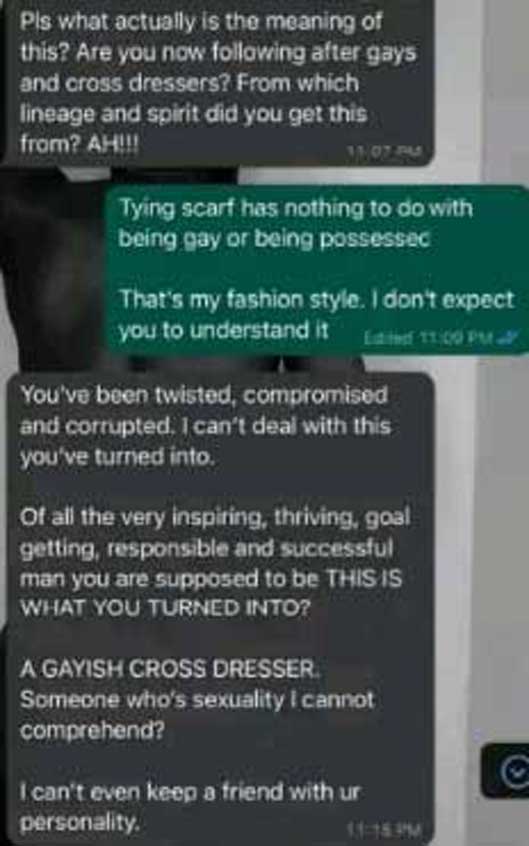
Then @sonofceci laid down the law: “I don’t need your approval.”
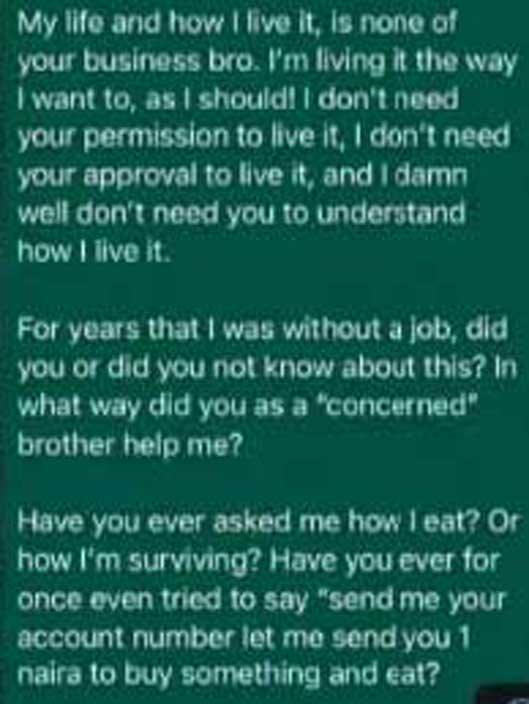
He wasn’t done quite yet.

@sonofceci’s experience is an example of the backlash received by many Nigerians who are queer or different. It also shows how negative stereotypes and false beliefs about being queer can ruin family bonds, sow hatred and alter how humans interpret, react, and respond to normal situations.
Just like @sonofceci, thousands of individuals in Nigeria and the world who happen to dress or love differently are at the receiving end of such aggressive and discriminatory behaviours from family, religious, and corporate organizations.
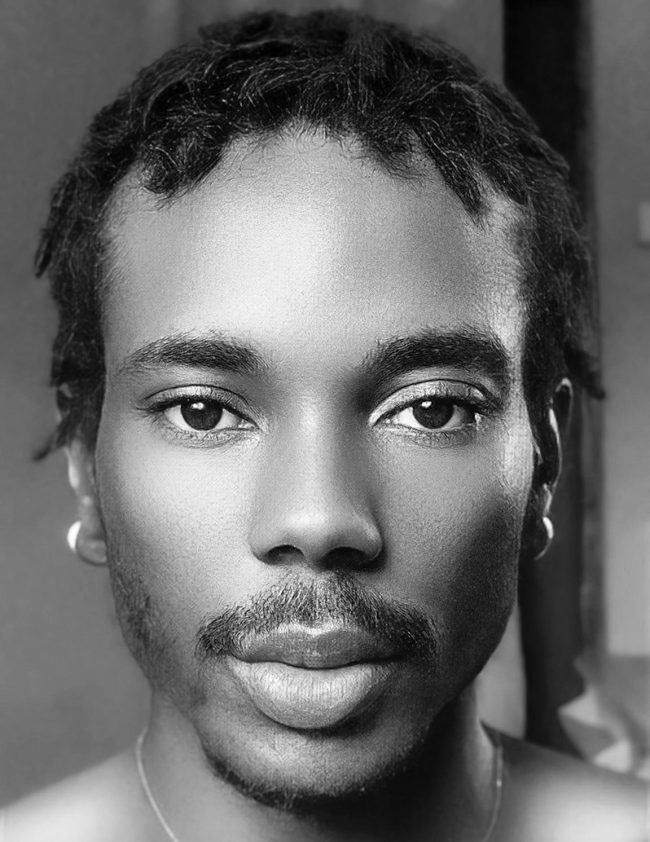
Ultimately, queer-phobic Nigerians must realize that being different or peculiar is completely normal. The onus lies on them to get rid of their biases, stereotypes, and false beliefs so that they are not left behind in an ever-evolving world.
Source: African Human Rights Media Network member NoStringsNG.




